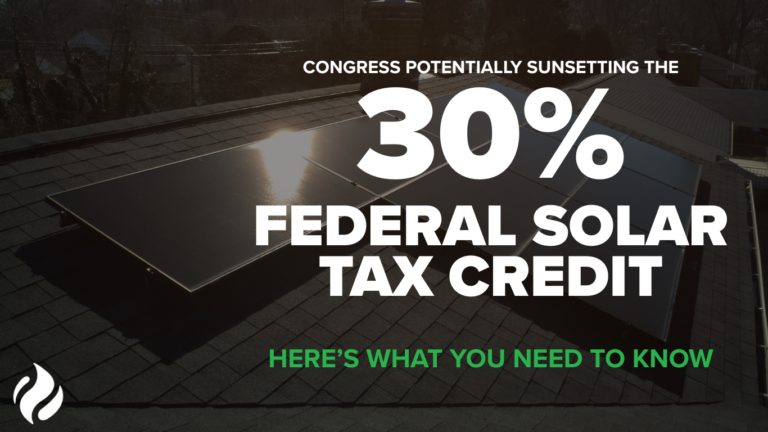Expert Guide to Installing Commercial Solar Panels in Delaware
Have you ever wondered how your choices today could shape the world for future generations? Imagine a future where your business not only thrives but also plays a vital role in preserving our planet for those who come after us.
For more information – Click Here
Delaware is quickly becoming a leader in adopting solar energy, offering businesses a chance to reduce costs and embrace clean energy. With state policies like net metering, excess energy generated by your system can be credited up to 110% of your yearly usage. This makes it easier to lower your electricity bills while contributing to a greener future.

Financing options like power purchase agreements and tax credits make it easier for businesses to invest in solar without high upfront costs. Delaware’s unique incentives, including solar renewable energy certificates (SRECs), further enhance the financial benefits. Whether you’re looking to cut expenses or improve your brand’s sustainability, solar is a smart choice.
At Lumina Solar Delaware, we specialize in helping businesses navigate these opportunities. From assessing your energy needs to handling the installation process, we’re here to make the transition seamless. Ready to explore how solar can work for you? Let’s get started.
Understanding Delaware’s Solar Energy Landscape
Delaware’s energy landscape is evolving with a strong focus on renewable solutions. In 2022, only 4% of the state’s electricity came from solar sources. This highlights a significant gap between consumption and production. However, Delaware is committed to closing this gap with ambitious goals like achieving 40% renewable energy by 2035.

One of the key drivers of this transition is the state’s Renewable Portfolio Standard (RPS). This policy mandates utilities to source a specific percentage of their energy from renewables. It’s a powerful incentive for businesses and homeowners to adopt clean energy solutions.
Another critical factor is net metering. Utilities like Delmarva and Delaware Electric Coop credit customers for excess energy fed back into the grid. This not only reduces electricity bills but also encourages more investment in solar systems.
Delaware’s regulatory framework is designed to support clean energy adoption. Policies like the Federal Tax Credit and state grants make it easier to offset installation costs. These incentives are essential for businesses looking to reduce expenses and enhance sustainability.
While challenges remain, the state’s commitment to renewable energy creates significant opportunities. By leveraging these policies, you can position your business as a leader in sustainability while enjoying long-term savings.
Commercial Solar Panels Installation in Delaware: What You Need to Know
Investing in clean energy can transform your business operations. Understanding the essentials of solar panel setups is crucial for a smooth transition. Here’s what you need to know to make informed decisions.
First, assess your energy needs. A professional solar company can evaluate your consumption patterns and recommend the right system size. This ensures maximum efficiency and long-term savings.
Next, consider your roof’s condition. A sturdy, well-maintained roof is essential for a successful installation. If repairs are needed, address them before proceeding. This avoids delays and additional costs.
Understanding financing options is equally important. Programs like power purchase agreements and solar loans make it easier to invest without upfront expenses. Additionally, the Federal Tax Credit can offset up to 30% of your costs.
Finally, review warranty and performance standards. A reliable solar installer will provide clear details about equipment lifespan and efficiency. This ensures your system delivers consistent results for years to come.
By focusing on these key areas, you can prepare for a seamless transition to clean energy. Ready to take the next step? Let’s explore how solar energy can benefit your business.
Evaluating Solar Financing, Loans, and Power Purchase Agreements
Exploring financing options for clean energy can make your transition smoother and more affordable. Whether you’re considering a solar loan, cash purchase, or a power purchase agreement, understanding the details helps you make the best choice for your business.
With a solar loan, you can finance your system without paying upfront. These loans often come with competitive interest rates and flexible terms. However, be mindful of dealer fees, which can add to the total cost. A cash purchase, on the other hand, requires a larger initial investment but offers immediate ownership and long-term savings.
A power purchase agreement (PPA) is another popular option. With a PPA, a solar company installs and maintains the system, while you pay for the energy it produces. This eliminates upfront costs and provides predictable energy rates. However, you won’t own the system, which may limit long-term benefits.
One of the most significant incentives is the tax credit under the Inflation Reduction Act. This credit allows you to deduct 30% of your system’s cost from your federal taxes. It’s a powerful way to reduce your overall investment and accelerate your return on savings.
When reviewing quotes, pay attention to details like equipment warranties, performance guarantees, and financing terms. A reliable solar installer will provide transparent information to help you compare options effectively.
By evaluating these financing choices, you can find the best fit for your budget and goals. Ready to take the next step? Lumina Solar Delaware is here to guide you through the process and help you maximize your clean energy benefits.
Preparing Your Business for a Solar Panel System Installation
Taking the leap into renewable energy requires careful preparation to ensure a smooth transition. Before installing a solar panel system, evaluate your building’s roof condition. A sturdy, well-maintained roof is essential for a successful setup. If repairs are needed, address them early to avoid delays.
Next, assess your energy load. A professional solar company can analyze your usage patterns and recommend the right system size. This ensures maximum efficiency and long-term savings. Understanding your expected energy production relative to usage is key to optimizing your investment.
Financial readiness is equally important. Explore options like solar loans or the tax credit under the Inflation Reduction Act. These incentives can significantly reduce upfront costs. Obtain multiple quotes to compare pricing, warranties, and equipment quality.
Don’t overlook local inspection guidelines. Ensure your project complies with state and utility regulations. Review maintenance warranties to understand long-term responsibilities. A reliable installer will provide clear details about system performance and lifespan.
By focusing on these steps, you can prepare your business for a seamless transition to solar energy. Ready to take the next step? Let’s make your renewable energy goals a reality.
Maximizing Incentives and Net Metering Programs in Delaware
Delaware offers a range of incentives to make renewable energy more accessible and affordable. By leveraging programs like net metering and Solar Renewable Energy Credits (SRECs), you can significantly reduce your overall costs. These programs are designed to reward you for contributing to the state’s clean energy goals.
Net metering allows you to earn credits for excess energy your solar panel system generates. Delaware’s policy credits up to 110% of your past year’s usage, helping you save on electricity bills. This makes it easier to offset your initial investment and enjoy long-term savings.
SRECs provide another financial boost. For every megawatt-hour of energy your system produces, you earn one SREC. These credits can be sold to utility companies, generating additional income. With SRECs valued at around $400 each, a typical 5 kW system can earn you $400 to $2,000 annually.
Don’t forget the tax credit under the Inflation Reduction Act. This credit allows you to deduct 30% of your system’s cost from your federal taxes. Combined with state rebates, it can significantly lower your upfront expenses. For example, a $10,000 system could qualify for a $3,000 tax deduction.
To maximize these benefits, start by researching local programs like Delaware’s Green Energy Program. Obtain multiple quotes to compare pricing and equipment warranties. A reliable solar company can guide you through the application process and ensure you meet all requirements.
By taking full advantage of these incentives, you can make your transition to renewable energy both cost-effective and rewarding. Ready to explore your options? Let’s help you unlock the full potential of Delaware’s clean energy programs.
Choosing the Right Solar Installer for Your Commercial Needs
Selecting the right partner for your renewable energy project is crucial for long-term success. A reliable solar company ensures your system is installed correctly and performs efficiently. Here’s how to make the best choice.
Start by checking for proper licensing and certifications. Look for installers with credentials like NABCEP, which indicates expertise in the field. This ensures your project meets industry standards and safety requirements.
Next, review the company’s track record. Read customer reviews and ask for references to gauge their reliability. A reputable installer will have a history of satisfied clients and successful projects.
Local knowledge is another critical factor. A company familiar with Delaware’s regulations and incentives can streamline the process. They’ll also provide tailored solutions that maximize your benefits.
Finally, evaluate their after-sales support. A strong warranty and maintenance plan ensure your equipment remains in top condition. This protects your investment and guarantees long-term performance.
By focusing on these criteria, you can choose a trusted partner for your installation. Ready to take the next step? Let’s help you find the right installer for your needs.
Understanding Solar Panel System Components and Technology
Understanding the components of a renewable energy setup is key to maximizing its benefits. A well-designed system relies on its core parts to deliver efficiency and reliability. Let’s break down the essential elements and how they work together.
The panels are the heart of the setup, converting sunlight into electricity. Modern panels typically have efficiency ratings between 15% and 25%, with high-end models reaching up to 24%. This means more energy production from the same amount of sunlight.
Inverters play a crucial role by converting the direct current (DC) generated by the panels into alternating current (AC) for your use. String inverters are cost-effective but can be affected by underperforming panels. Micro-inverters, on the other hand, allow each panel to operate independently, enhancing overall performance.
Mounting hardware ensures your panels are securely installed. Roof mounts are common, but ground and pole mounts offer flexibility in challenging environments. Trackers, which follow the sun’s path, can boost efficiency but are often more expensive.
Modern advancements in technology have made these systems more reliable than ever. For example, most panels come with a 25-year performance warranty, guaranteeing at least 80% efficiency at that mark. This ensures long-term savings and peace of mind.
Understanding these components is essential before making your purchase. It helps you choose the right setup for your needs and ensures maximum returns on your investment. Ready to explore your options? Let’s help you build a system that works for you.
Assessing Environmental Impact and Long-Term Savings
Switching to renewable energy isn’t just about saving money—it’s about creating a sustainable future. By adopting solar panel technology, you can significantly reduce your reliance on fossil fuels. This shift helps lower carbon emissions, contributing to a cleaner environment for future generations.
One of the most immediate benefits is the reduction in your electricity bills. In Delaware, homeowners and businesses can save between 10% and 30% monthly by switching to solar. Over the lifespan of a system, these savings can add up to tens of thousands of dollars.
Delaware’s incentive programs further enhance these benefits. Net metering allows you to earn credits for excess energy your solar panel system generates. This means you can offset your initial investment faster and enjoy long-term financial stability.
Beyond financial gains, solar energy increases your property value. Homes with solar panel systems are more attractive to buyers, offering a competitive edge in the real estate market. Additionally, the long lifespan of these systems ensures minimal maintenance and consistent performance.
By investing in solar, you’re not just saving money—you’re investing in a cleaner, more sustainable future. Ready to take the next step? Let’s help you unlock the full potential of renewable energy.
Navigating Delaware’s Renewable Energy Policies and Steps to Go Solar
Delaware’s commitment to renewable energy is backed by clear policies and incentives that make the transition straightforward. The state aims to achieve 40% renewable energy by 2035, creating a robust framework for businesses and homeowners to adopt solar panel systems. Understanding these policies is the first step toward making an informed decision.
One of the key programs is the Green Energy Program, which offers rebates for renewable energy projects. Since 1999, it has funded over 6,000 initiatives, making it a reliable resource for financial support. Additionally, Delaware’s net metering policy allows you to earn credits for excess energy your system generates, reducing your electricity bills significantly.
To get started, you’ll need to secure the necessary permits. The state requires compliance with local regulations, and working with an approved company ensures your project meets all standards. The Delaware Public Service Commission certifies systems to sell renewable energy credits, adding another layer of financial benefit.
Financial incentives like the Federal Tax Credit can offset up to 30% of your system’s cost. Combined with state rebates, this makes the investment more affordable. For example, the Low- to Moderate-Income Solar Program offers reduced-cost installations, expanding access to renewable energy.
Here’s a quick guide to begin your journey:
1. Assess your energy needs and roof condition.
2. Research approved contractors and obtain multiple quotes.
3. Apply for permits and incentives through the Green Energy Program.
4. Schedule your installation with a certified installer.
5. Monitor your system’s performance and enjoy the savings.
By following these steps, you can navigate Delaware’s renewable energy policies with confidence. Ready to take the next step? Let’s help you unlock the full potential of solar energy for your property.
Key Considerations for Commercial Solar Investment in the U.S.
Making a smart investment in renewable energy requires careful planning and understanding of key factors. Whether you’re in Delaware or another state, evaluating the right setup for your business involves more than just cost considerations. Here’s what you need to know to make an informed decision.
First, focus on equipment quality. High-performance solar panels and inverters ensure maximum energy production and durability. Look for warranties that cover at least 25 years, as this guarantees long-term reliability and savings.
Next, consider financing options. A solar loan can help you spread the cost over time, while federal tax credits can offset up to 30% of your investment. These incentives make it easier to manage upfront expenses and accelerate your return on savings.
Choosing the right company is equally important. A reputable installer ensures your system is installed correctly and performs efficiently. Check for certifications like NABCEP and read customer reviews to gauge their reliability.
Finally, review local policies and incentives. Delaware’s programs, like net metering and SRECs, align with national trends, offering significant financial benefits. Understanding these opportunities can help you maximize your investment and contribute to a cleaner future.
By focusing on these key areas, you can make a confident decision that benefits your business and the environment. Ready to take the next step? Let’s help you unlock the full potential of renewable energy.
Conclusion
Embracing renewable energy is a smart move for your business. Understanding Delaware’s policies and incentives can help you maximize savings and efficiency. Programs like net metering and state rebates make the transition affordable and rewarding.
By focusing on quality equipment and reliable installers, you ensure long-term performance. High-efficiency systems with strong warranties provide peace of mind and consistent results. These investments not only reduce costs but also enhance your sustainability efforts.
Lumina Solar Delaware is here to guide you every step of the way. From assessing your needs to handling permits and financing, we make the process seamless. Ready to take the next step? Let’s help you unlock the full potential of clean energy for your business.


